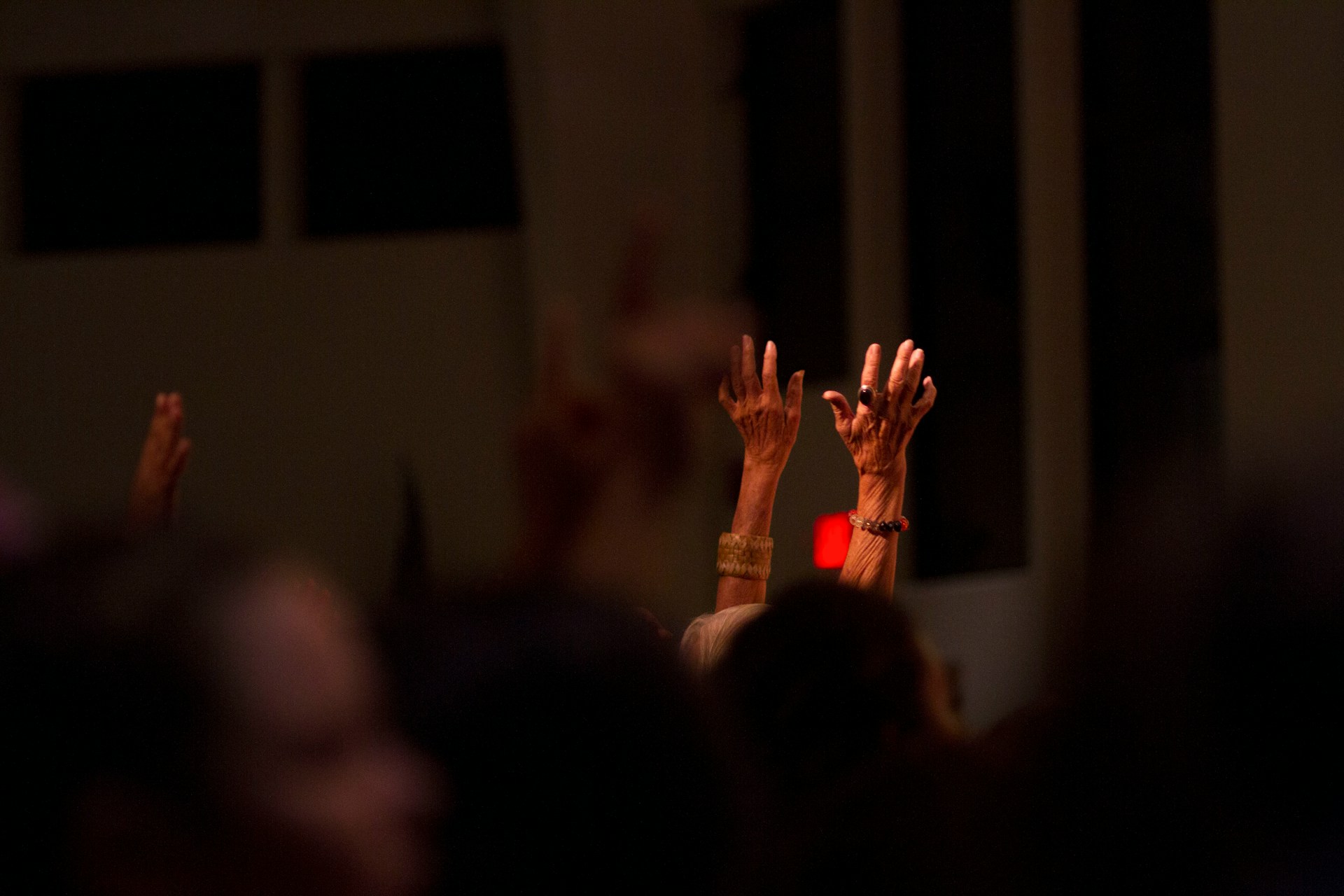For hundreds of years, the word “liturgy” has primarily been associated with the high church worship traditions of Catholics, Lutherans, Episcopalians, and Anglicans, causing various other traditions to shy away from having robust, healthy liturgies in their own Sunday worship gatherings. Peter Leithart describes this sentiment in his pro-liturgy book titled Theopolitan Liturgy,
“Some Christians are put off by the word ‘liturgy.’ It conjures up images of dank churches full of dull people bumbling and mumbling their way through inexplicable rituals. A liturgical church is, by definition, a dead church, murdered by vain repetitions. If we’re merciful, we’ll give it a dignified burial.”
For some, this may be a sentiment you’d like to keep. You may be under the impression that energy and life on a Sunday morning come from well-trained musicians and singers and a polished message from the pastor. While these elements have their place, they’re not the only parts of the worship service God uses.
If you find yourself averse to liturgy or unfamiliar with it, it may be helpful to remember every church adopts a method of liturgy—whether it’s intentional or not. Here are three ways to help form a thoughtful liturgy to make your Sunday gathering biblically robust, intentionally formative, and culturally transformative.
1. Biblically Robust
With thoughtful liturgy, you can insert more Bible throughout your service, thus exposing those in attendance to more of the story of God from start to finish.
At my church, we begin each service with a biblical call to worship—reminding us God has intentionally called us to gather this way. Additionally, this reminds us that we’re here to worship God, not a band, not a preacher, and especially not ourselves. We also insert the Scriptures by using the Lord’s Prayer (spoken corporately), which takes place after our pastoral prayer. This shows that Jesus continually teaches us to pray using his Word as a formative tool.
Another simple yet profound way to incorporate liturgy in your worship service is by reading the Word. The text chosen to be read typically complements the preaching text directly. For example, if the preaching text is from the Old Testament, this will be a New Testament reading with the same theme and vice versa. This teaches our people that the message the preacher proclaims is a biblical truth communicated throughout the Scriptures and has a place within the context of the Bible. Confession of sin follows our Scripture reading along with the assurance of the gospel. This reminds us from the Bible that God hears our confession and promises to forgive us. Being a church with strong liturgical practices can keep us from slipping into the allowance of cultural influence—in our worship gatherings and the church broadly. Click Para Twittear
These elements of liturgy lead us to the central focus of service—the preaching and exposition of the Word, followed by communion and a final benediction. The combination of these things creates an intentionally formative worship service and shows us how the story of the Bible informs and shapes our lives.
2. Intentionally Formative
The Sunday gathering is often the only time pastors have most of our people under one roof, so we must use our time well. Consider these five ways God calls, cleanses, consecrates, communes, and commissions us as you intentionally form your Sunday morning liturgy.
God Calls Us. . . On Sundays, we go from being the church scattered to the church gathered. God, our Creator and Redeemer, always initiates worship—calling us into his holy presence. We respond with joyous praise and celebration.
God Cleanses Us. . . In the light of God’s love, we are made painfully aware of our brokenness and deep need for healing. We confess our brokenness and need for healing and grace and hear words of assurance that the gospel is, first and foremost, for sinners.
God Consecrates Us. . . We learn what it means to follow God in the way of Jesus by reflecting on God’s story told in the Bible. It’s through Scripture that God’s Spirit consecrates us, forming and reforming us for the adventure of living in God’s kingdom.
God Communes with Us. . . Worship climaxes with the ancient Christian practice of communion, or the Eucharist, where we are united to Christ and one another through sharing the common bread and cup.
God Commissions Us. . . We are sent into the world to love and bless it and to make Jesus known, inviting others to follow Him.
These great truths are foundational for the liturgy of our worship services. They teach our people that cultural transformation doesn’t happen outside our church in politics and culture but within the church. As we’re collectively transformed and shaped, the cultural spheres into which our people are called will be transformed.
3. Culturally Transformative
Just like our churches have liturgical practices, so it is with the culture. Being a church with strong liturgical practices can keep us from slipping into the allowance of cultural influence—in our worship gatherings and the church broadly. A robust liturgical practice can (and will) influence the surrounding culture as the liturgy transforms our people.
By committing ourselves to this rhythm of liturgy each week, we challenge our people to set their weekly and daily rhythms to this as well. God not only calls us to worship on a Sunday—he calls us to worship in our vocation on Monday morning and beyond. Confession of sin and the assurance of God’s forgiveness is just as applicable and life-giving when a parent lashes out in anger toward their child as it is on a Sunday morning. The benediction at the end of your service each Sunday isn’t a mere farewell; it’s a sending—God’s people are sent out as instruments of his redemptive work in this world.
Church planter and pastor, your church’s liturgical practices are deeply impactful beyond Sunday morning. Consider liturgy as a tool for discipleship, and know it can be a life-giving experience for your church and community.










